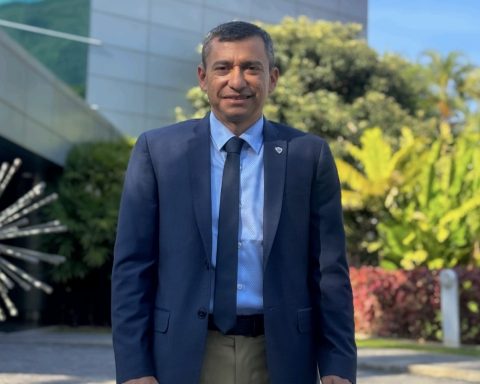This March 3 marks the “World Hearing Day”, which was established by the World Health Organization (WHO) with the aim of promoting early detection of hearing problems or hearing impairment that may occur in people of all the world. This year the theme is “Ear and Hearing Care for All, Let’s Make It Happen!”
Globally, more than 1.5 billion people experience some decline in your hearing ability in their lifetime, while many more are at risk of hearing loss from preventable causes.
Hearing defect is understood as the complete or partial loss of the ability to hear. There are many causes that could generate it, among which we can mention: hereditary factors, premature birth, congenital infections, advanced age, exposure to noise, use of ototoxic medications, infectious diseases such as Meningitis, Rubella, among others.
The most obvious impact of hearing loss in childhood has to do with language acquisition, but the disorder also affects learning as a whole and the development of social skills and attitudes, including self-esteem.
Untreated hearing loss is often accompanied by poor academic performance, which can lead to poorer professional performance and, later, diminished employment prospects.
Hearing problems can be treated according to the causes, which can be medical or surgical treatments. Among these treatments we have cochlear implants or hearing aids that must be defined by the specialist doctor on otolaryngologist.
The WHO suggests some simple prevention strategies:
Vaccinate children against childhood diseases, particularly measles, meningitis, rubella and mumps.
Give the rubella vaccine to adolescents and women of childbearing age before they become pregnant.
Perform screening tests to rule out syphilis and other infections in pregnant women.
Avoid the use of ototoxic drugs unless they are prescribed by a qualified physician and the dosage is carefully monitored.
When necessary, refer infants at high risk for these problems (for example, those with a family history of deafness, low birth weight, or birth asphyxia, neonatal jaundice, meningitis, etc.) for evaluation with the specialist.
Reduce exposure (work or personal) to excessively loud sounds and noise through awareness, use of personal protection devices, and enforcement of appropriate laws.
It may interest you: Ear wax is not dirt: doctors recommend against using Q-tips
Likewise, some practical advice is recalled to help maintain good hearing health. WHO/PAHO.
-
Wear earplugs in noisy places.
-
Wear hearing aids regularly, when recommended.
-
Avoid using cotton buds (Q-tips), oil, sticks, or pins inside the ears.
-
Do not swim or wash in dirty water
-
Do without sharing earphones or earplugs.
-
Have your hearing checked regularly by a medical consultation.
-
Do not listen to loud sounds or loud music.
-
See a doctor if you have ear or hearing problems.
The Ministry of Public Health and Social Welfare currently has 30 health establishments for the early detection of hypoacusis (hearing loss), specifically the study of otoacoustic emissions (OAE), distributed in referral hospitals.
There are specialized centers with audiological areas, such as the “Niños de Acosta Ñu” Pediatric Hospital and the Hogar Santo Domingo.
In addition, three more audiological areas are in the process of being installed at the San Pablo Hospital, Barrio Obrero Hospital and Itauguá National Hospital, where there will be more audiological studies that complement the evaluation of the specialist doctor.
Likewise, inter-institutional agreements are in force with the National Secretary for the Human Rights of Persons with Disabilities (SENADIS) and the Chair of Otolaryngology of the Hospital de Clínicas for the follow-up and comprehensive treatment of patients.












![[EN VIVO] Congress admits to debate interpellation against the Minister of the Interior [EN VIVO] Congress admits to debate interpellation against the Minister of the Interior](https://latin-american.news/wp-content/uploads/2023/03/EN-VIVO-Congress-admits-to-debate-interpellation-against-the-Minister-1024x563.jpg)




